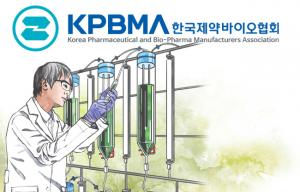
Korea Pharmaceutical and Bio-Pharma Manufactures Association (KPBMA) said it would send member firms a letter introducing a global non-profit antibiotics research and development institution, encouraging them to participate in developing new antibiotics.
The move comes amid a rising need for new antibiotics as the antibiotic resistance problem is becoming increasingly dangerous.
The causes of antibiotic resistance problems vary from unnecessary prescription and abuse to poor management system of medical institutions, and lack of antibiotics to eliminate tolerance.
There is a development delay on new antibiotics that can cope with bacteria resistant to existing antibiotics. The current clinical pipeline focusing mainly on a modified form of existing antibiotics has also added to the problem.
KPBMA will introduce Global Antibiotic Research & Development Partnership (GARDP). The institution is an international organization of public and private partnerships that facilitates the proper use of antibiotics and promotes the development of antibiotics. It receives financial support from both the government and the private sector.
With the support, the institution is operating four R&D programs -- an antibiotic platform for neonatal sepsis, sexually transmitted diseases, antibiotics for children, and restoring intellectual property and materials for R&D of antibiotics in the past. It also is in the process of clinical trials of gynecologic drugs in cooperation with a company specializing in developing antibiotics.
KPBMA said it believes that if the domestic pharmaceutical industry participates in a private partnership with GARDP, it can be beneficial for the companies’ finance and publicity.
“Cooperation with GARDP is meaningful as it can contribute to the cost-effective R&D of new drugs by participating in projects for antibiotics, which emerging as a global public health problem, as well as fulfilling corporate social responsibility (CSR),” a KPBMA official said.
They will also be able to secure a competitive advantage on innovative new drugs while using the edge to leverage various partnerships in the R&D field other than antibiotics as a stepping stone for overseas expansion, the official added.
According to a report released by the British government, about 700,000 people die annually from antibiotic resistance globally. The report also stresses that by 2050, the number of deaths will soar to 10 million people a year, and the cost of treatment is expected to increase to astronomical levels of 100 quadrillion won ($100 trillion).

